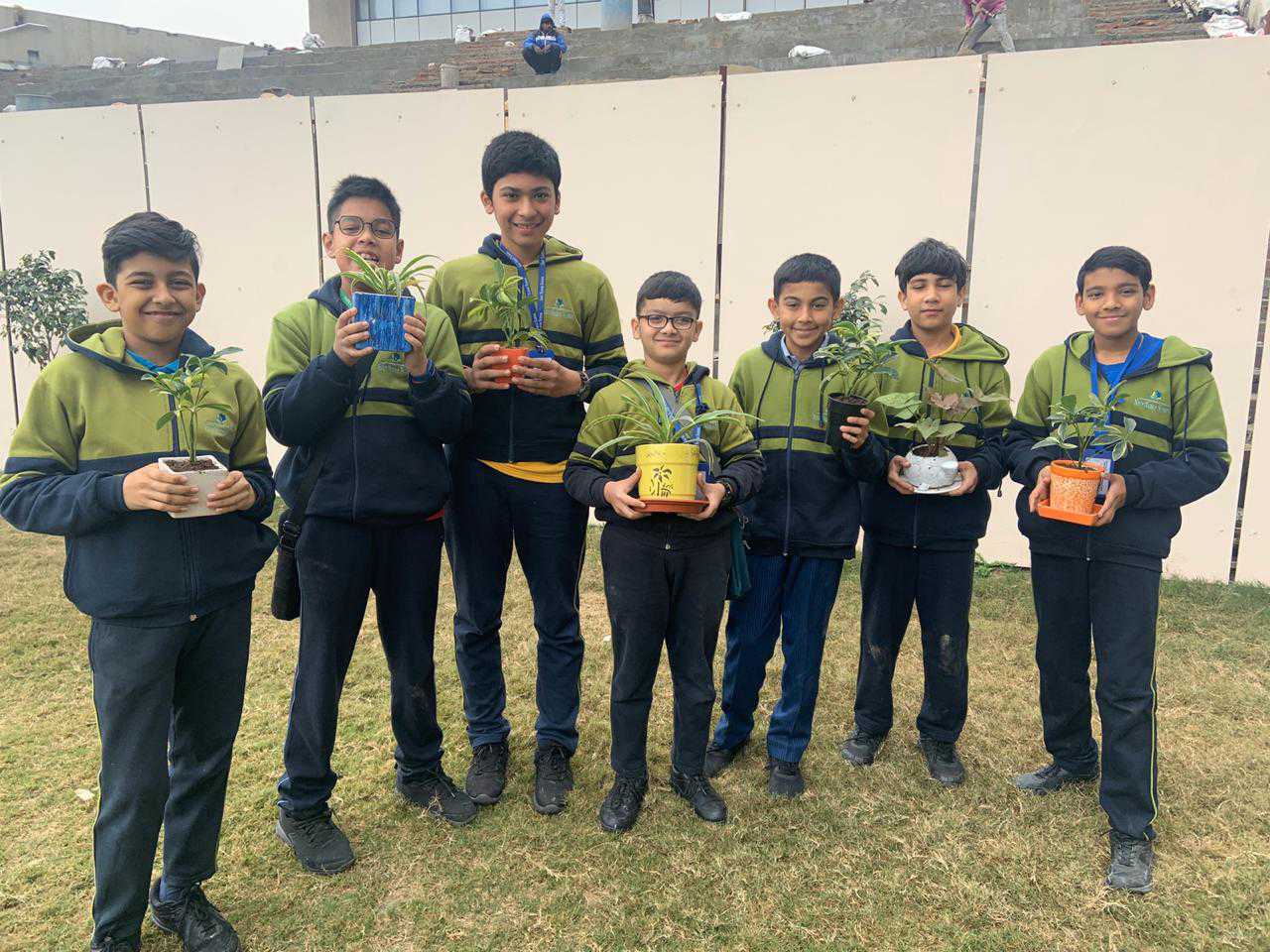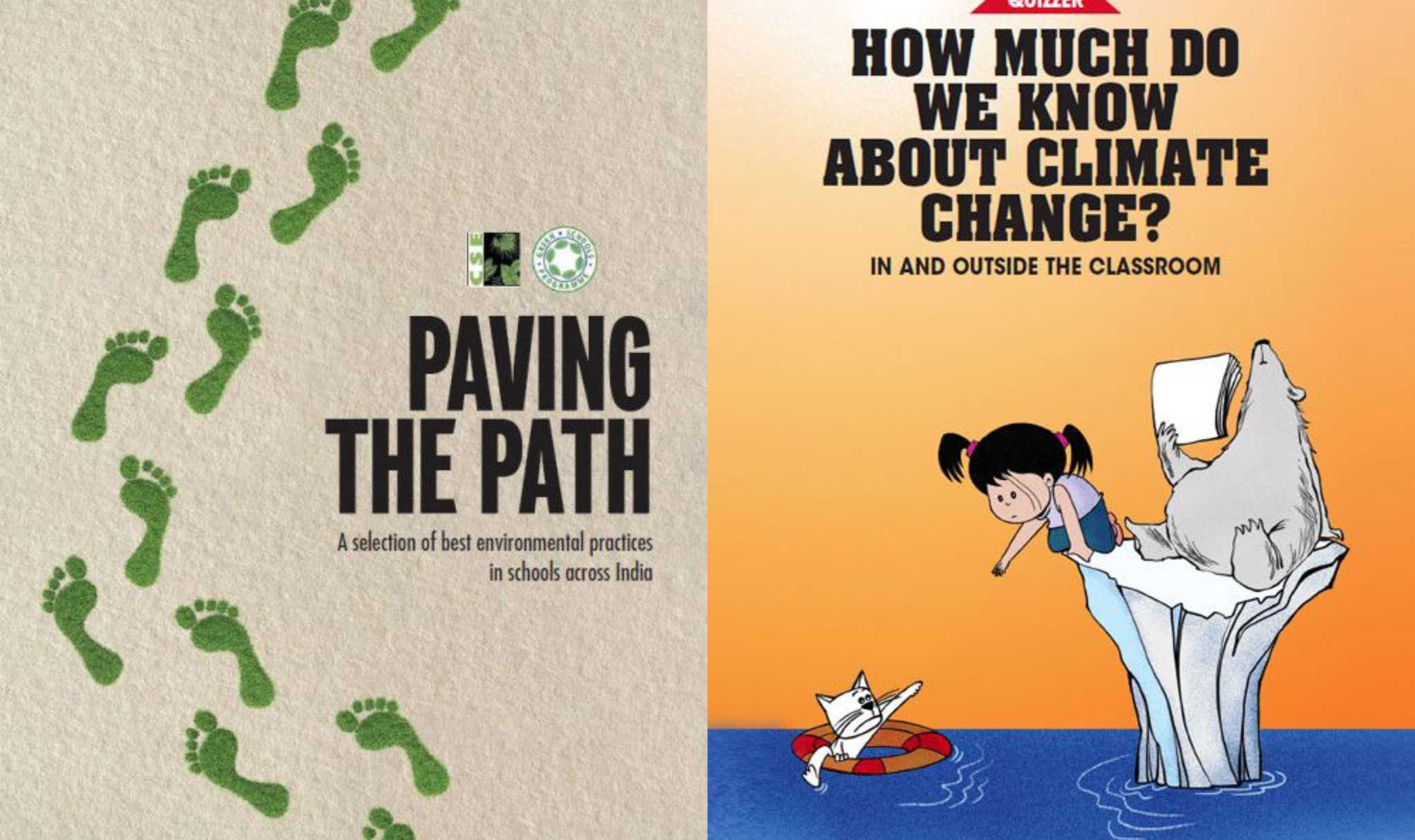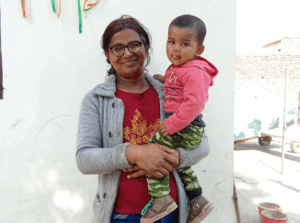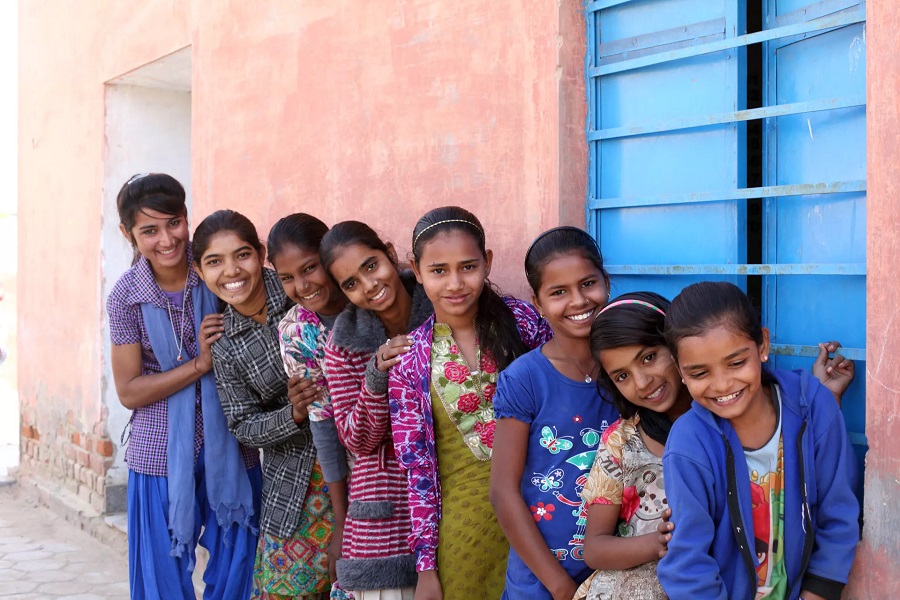Inspiration
On World Environment Day, Meet 12 Young & Feisty Warriors Protecting The Mother Earth
Read how are they bringing a change in the world through their voice.

5th of June is worldwide celebrated as World Environment Day – a United Nations day that has been dedicated to build awareness and remind us of our responsibility towards the environment since 1974. It was established by the UN General Assembly on the first day of the Stockholm Conference on the Human Environment in 1972 and two years later, it was celebrated for the first time with the theme "Only One Earth.”
Decades later, however, we find ourselves grappling with an unimaginable climate crisis. Generation after generation has been caught in the whirl of development, ignoring the adverse effects of industrialisation and globalisation. It took only one question, "How dare you?” by a teenager to make all of us rethink our daily acts and duty towards the environment. The teenager was Greta Thunberg, a climate activist, who showed us that there is a generation that has decided to stand and fight for its home.
Read about the other 12 young warriors of the Gen Z and Gen Alpha who are working hard to bring a change to the world, both with words and actions, and let your students get inspired by their stories.
1. Licypriya Kangujam | 8 Y.O. | India
Hailing from Manipur, India, Licypriya came to people’s attention through her organization The Child Movement, that seeks the attention of world leaders to take immediate action to save the planet. From addressing at the United Nations’ Climate Conference 2019 in Spain to waiting a week outside the Indian parliament to seek the PMO’s attention to pass the climate law in India, she’s been actively participating since such a young age! She has won many accolades and awards for her work.
2. Artemisa Xakriabá | 19 Y.O | Brazil
She is an indigenous climate activist from São João das Missões in Brazil, who has been working to stop environmental destruction across Brazil, and especially, the Amazon rainforest. A representative of the Global Alliance of Territorial Communities, which protects 600 hectares of forest across Brazil, the Amazon Basin, Mesoamerica and Indonesia, she travelled to America last year to attend the climate talks and sought the support of international leaders towards deforestation.
3. Autumn Peltier | 15 Y.O. | Canada
She is an indigenous Canadian water warrior, who has been advocating for clean drinking water. Just at the age of 12, she met with Canada Prime Minister Justin Trudeau and insisted him to do more to prevent Canadian communities from consuming unsafe water. She is now called the ‘Water Warrior’ and is also the Chief Water Commissioner for the Anishinabek Nation, which is a political advocate for 40 First Nations in Ontario.
4. Jerome Foster II | 18 Y.O. | USA
He is an African-American climate activist from Washington, D.C., USA. Jerome is the Founder and Editor-in-Chief of youth-led climate news outlet The Climate Reporter, which he founded when he was in 10th grade. It now has 11 writers and activists from around the world. He is also the Executive Director and Founder of One Million Of Us, a non-profit that educates youth on climate change issues, immigration reforms, and voting rights. He recently spoke at the UN Youth Climate Summit on the climate crisis.
5. Melati Wijsen | 18 Y.O. | Indonesia
She is an Indonesian-Dutch activist, who has been campaigning against plastic pollution and for the same founded Bye Bye Plastic Bags organization, along with her sister Isabel, in the year 2013. The organization advocates a ban on single-use plastics and encourages the world to adopt alternatives to plastic. Her youth-led climate-driven campaign, beach cleanups, online petitions, and international speaking engagements like at the UN and IMF-World Bank Group forum, played a big role in the Indonesia government banning single-use plastic in Bali in 2019.
6. Jamie Margolin | 18 Y.O. | USA
The 18-year-old climate activist founded Zero Hour when she was just 15 and led the first youth climate rally in Washington, D.C. and 20 other countries in 2018. Her organization aims to amplify young voices against the climate crisis and encourage them to participate in bringing a change to the world. She has also written a book, Youth to Power: Your Voice and How to Use It, which was released on 2 June 2020.
7. Misimi Isimi | 13 Y.O. | Nigeria
This climate activist from Lagos, Nigeria, calls herself Miss Environment and says is on a mission to save Lagos from environmental waste. She is the president of the Eco Kids Green Club, which hosts activities on managing waste and teaches & encourages children on living a sustainable life. The club also educates on wildlife and the frequent challenges that they face like deforestation. She recently shared that her recycling app is in the making.
8. Ayakha Melithafa | 18 Y.O. | South Africa
She is an activist based in Cape Town, who represented South Africa as one of the teen changemakers at the World Economic Forum in Davos, Switzerland. She was one of 16 to sign a legal complaint on the government’s inaction toward the climate crisis with the United Nations Convention. She’s an active member of the Project 90 by 2030 initiative that’s working for a sustainably developed and equitable low-carbon economy. She is a recruitment official and spokesperson for the African Climate Alliance, which is youth-led climate advocacy working with different youth activists from around the world.
9. Lilly Platt | 11 Y.O. | Netherlands
Advocating against plastic pollution, Lilly is the Youth Ambassador for the non-partisan Plastic Pollution Coalition and a child ambassador for World Cleanup Day. She started her plastic-cleanup initiative called Lilly’s Plastic Pickup when she was just 7! She cleaned about 8000 pieces of trash from the streets of Holland in the year 2018. She was scheduled to speak at the UN’s virtual summit for World Oceans Day on 8 June 2020.
10. Isra Hirsi | 17 Y.O. | USA
An American activist, she is the co-founder and Executive Director of the US Youth Climate Strike. She has led many strikes that highlighted the impact of the climate crisis on the world, especially on the people of colour and low-income communities. In 2019, former President of the USA, Barack Obama, tweeted Hirsi’s name among the five young activists that the world should watch out for. Hirsi recently received the Voice of the Future Award.
11.Ridhima Pandey | 12 Y.O.| India
She hails from Haridwar, India, and is one of the young climate activists to file a complaint at the United Nations to protest against the government’s inactive action on the climate crisis. She came in news after she filed a petition in the National Green Tribunal against the government for failing to take action on climate change in the year 2017. “India is one of the most vulnerable countries to be affected by climate change,” her petition stated as she demanded immediate government action to assess industrial projects, prepare a carbon budget and create a climate recovery plan.
12. Aditya Mukarji | 15 Y.O. | India
This Delhi-based young environmental activist hit the news in the year 2018 after he started a campaign requesting people to replace plastic straws with eco-friendly alternatives by going around cafes and restaurants. He is one of the young volunteers at NGO Chintan that has helped to eliminate around 25 million plastic straws and other single-use plastics from the ecosystem.
Education
A School Without Walls: The Pehchaan Story, Led by Akash Tandon

Sometimes the biggest change begins with the smallest act — a few mats on the ground, five curious children, and a group of young volunteers refusing to look away.
In the heart of Delhi, just steps away from the WHO headquarters and the grandeur of Lutyens’ Delhi, an open drain separates two vastly different worlds. On one side: embassies, privilege, policy. On the other: a slum of over 10,000 people, where childhood is often lost to labour, illness, and invisibility.
It’s here that Pehchaan — The Street School — took root.
“We knew we couldn’t change the world. But we could change someone’s world.”
For co-founder Akash Tandon, Pehchaan wasn’t part of a five-year plan. It was a response. A moment of reckoning, watching children play in a toxic drain, unaware of the danger. “This isn’t water,” they told the kids. “It’s poison.” The kids laughed.
That laugh stayed with them.
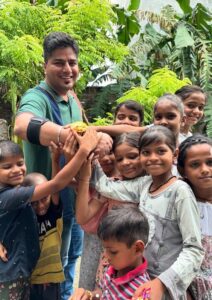
So Akash and his friends returned. Not with speeches or slogans — but with notebooks, mats, and the stubborn belief that every child, no matter their address, deserves to learn.
What started as a weekend effort with five students has now grown into a network of 10 centres, reaching over 1,600 children. And yet, Pehchaan remains fiercely grassroots — no paid staff, no office, no formal backing. Just a living, breathing movement powered entirely by volunteers.
Education That Heals
Pehchaan doesn’t just teach. It listens. It adapts. It believes that the first step to learning is dignity — and that means personalised mentorship, trust, and a curriculum that sees the child beyond the textbook.
Children are grouped into three learning tracks: those already in school who need support, dropouts looking to rejoin, and first-time learners who’ve never stepped inside a classroom. The model is lean but layered — with low student-volunteer ratios, personalised goals, and modules that blend academics with life skills.
There’s dance, storytelling, debate, and painting. There’s coding and digital literacy. And there’s space to be seen.
“My school encouraged me to sing, speak, perform,” says Preeti Adhikari, a longtime Pehchaan volunteer. “These children deserve that too. Because it’s not just about marks — it’s about confidence.”
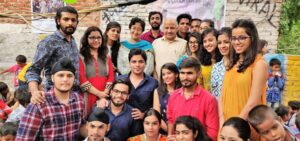
From Drain to Degree
One story stays close to Akash’s heart.
A boy joined Pehchaan in Class 3. He faced pressure to drop out and start working. But he stayed. Pehchaan gave him academic support, counselling, and community. He completed Class 12 with 86%. Then cracked the Delhi University entrance exam.
But the resistance didn’t stop. “What will you earn from books?” neighbours asked. Still, Pehchaan raised the funds, got him into college — and today, that boy teaches at the same centre where he once sat as a student.
“He’s the proof,” Akash says. “That this works. That this matters.”
A System That Runs Without a System
Despite being volunteer-run, Pehchaan operates with the discipline of a corporate team. Every 10 teaching assistants report to a centre head. Weekly reports are filed. Interns handle HR, design, digital media, and curriculum — all without salaries.
In 2024 alone, 8,000+ interns from 75+ colleges joined hands with Pehchaan. Many now lead verticals, train others, or launch their own community learning spaces.
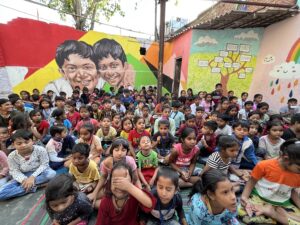
“Earlier I taught five kids,” one intern said. “Now I’m hiring 30 volunteers who each teach five. That’s impact at scale.”
The community, too, is beginning to notice. Blanket drives, nutrition partnerships, and the newly launched Digital Literacy Lab — built with scrap funding and donated laptops — have brought a sense of permanence to the pop-up classrooms.
But the hardest barrier? Still parents.
“You show up for 10 years — then they believe you.”
Convincing slum families to send their children — especially girls — to informal schools was a long battle. Many children still get married by 14. Others are pushed into work.
But when the same group of volunteers keeps returning, year after year, in sun, rain, or smog — trust begins to grow. “We’ve moved beyond convincing now,” Akash reflects. “We’re building the next layer. It’s about dignity.”
Girls who once never stepped outside now give public speeches. Boys once caught in addiction now mentor others.
Akash is clear about the goal: “We don’t want to go pan-India. We want 50 other Pehchaans to emerge. That’s how you scale — by letting go.”
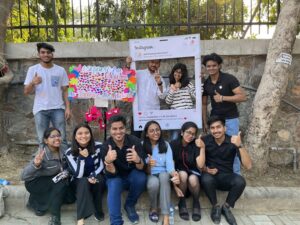
Read the full story in our latest issue, Teacher Warriors 2025.
Education
The Woman Who Refused to Disappear – Aditi Sharma’s Quiet Fight for Education

In a quiet corner of Karnal, Haryana, Aditi Sharma runs a small school for underprivileged children. She is the founder, principal, and often, the only teacher. As a transgender woman in North India, her journey has been marked by resistance and isolation — but also by unwavering commitment. Her school may lack formal recognition or resources, but it stands as a space of learning, inclusion, and quiet resilience.
Aditi is not just the founder and principal of Haryana Public School. She is also a transgender woman who dared to imagine a different kind of North India — one where prejudice makes way for possibility, and education belongs to everyone.
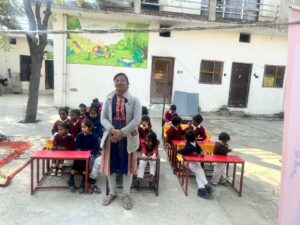
But dreams, she learned early on, come at a cost.
Born and raised in Delhi, Aditi was no stranger to the stereotypes that shadow the transgender community.
“Even educated people carry the assumption that all trans people beg or perform ceremonial rituals. That’s the stereotype I grew up seeing around me,” she says.
It disturbed her and lit the fuse of quiet rebellion.
Leaving Delhi behind, she moved to Karnal with one goal: to build a school not just for visibility, but for children who had nowhere else to go. Her father, unaware she had come out, gave her a 1,200-square-yard plot to build on. “At the time, I hadn’t fully come out. Had they known I was transgender, they wouldn’t have named it to me.”
What she built wasn’t just a school — it was a statement.
In the beginning, there were no teachers, no steady funds, and no blueprint. “I doubted whether I could run a school at all. I had no confidence. But slowly, a few children started coming in. Then a few more. At one point, we had 60–70 students.”
That number dropped, not due to a lack of dedication, but constant harassment. Neighbours let their dogs loose outside. Parents were warned, “Why send your child there? This isn’t a real school.” Some believed her identity disqualified her from leadership, from teaching, from existing with dignity.
She persisted anyway.
Aditi never set out to run a school for underprivileged children. It wasn’t a strategic choice or a targeted mission. It was simply what remained when everyone else walked away. Families who could afford higher fees refused to send their children to a school run by a transgender woman. Teachers quit under social pressure. So she opened her doors to those who had nowhere else to go — children whose families could pay ₹100 a month, sometimes just ₹50, and often nothing at all. “If they don’t learn here, they won’t learn anywhere,” she says. And so she teaches — not because it’s easy, but because no one else will.
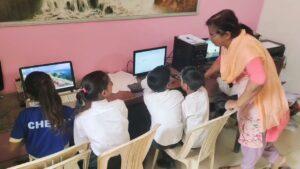
Her day begins at 4 AM — cleaning, prepping, sourcing supplies. By 8 AM, she’s teaching English, guiding students through computing tasks, or painting with them on borrowed desktops. She buys second-hand books herself. There are no permanent staff members. Most teachers leave within weeks. “They say, ‘My family doesn’t want me working here.’ The social pressure is immense.”
Once, a neighbour handed her a one-day-old baby and walked away. Aditi cared for her. When the child fell ill, she spent 12 days at the hospital with her — and the other children. Alone. “They don’t speak to me anymore,” she says of her family. “I’ve learned to let go. If someone doesn’t want to stay in touch, that’s okay. You still have to be happy.”
Haryana Public School is still not recognised by the state government. Despite its large plot, authorities claim she doesn’t meet the criteria. “Other schools on smaller land get recognised,” she says. “But because I’m transgender, they say no.” Her case is currently being reviewed by the Human Rights Commission. Justice Lalit Batra, in a hearing, reportedly said:
“If she doesn’t meet your current rule, change the rule.”
Meanwhile, the children continue to learn — with donated books, basic tools, and the irrepressible will of one woman. Aditi has even built two giant model airplanes — one stretching 20 feet — from scrap and wood. “They don’t fly, but they spark curiosity. Ten children can sit inside. It makes them dream.”
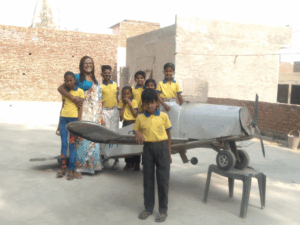
And dreams are something she insists on, even when the world offers no applause. “One child had developmental issues. No school would take him. People told me I was wasting my time. But he deserved a chance.”
Sometimes, appreciation is scarce. Respect even more so. “When parents don’t respect you, neither do their children,” she admits. “When your own life is a constant struggle, it becomes hard to build emotional bonds.”
But she still shows up every day. Reporters ask why so many people visit her school. “Because we’re doing something that shakes the norms,” she tells the children. “This school is special.”
And they believe her. Because children don’t discriminate. Adults do.
Her message to the transgender community is clear:
“Don’t wait for society to accept you. Build your own path. Even if you’re the only one walking it.”
Aditi Sharma may be the only openly transgender woman in North India running a school. But she’s not asking for sympathy. Just space. Just dignity. Just the right to show up — and not disappear.
“Even if only one child comes,” she says,
“I’ll keep the doors open.”
Read the full story in our latest Teacher Warriors issue: https://scoonews.com/magazines/scoonews-june-july-2025-digital-edition/
Education
A Vision Beyond Sight – How Aarti Takawane is Rewriting Futures for Blind Girls

Sometimes, the most extraordinary journeys begin with an ordinary restlessness — that nagging sense that comfort isn’t enough. For Aarti Takawane, that quiet realisation led her to walk away from a secure corporate job, and towards a mission she never imagined for herself.
Aarti’s early career looked like everything most people might aspire to: a steady job, good salary, and the kind of stability that makes parents proud. But deep down, she felt a pull that numbers and meetings just couldn’t satisfy. With a background in psychology and a genuine desire to help others, she always knew her purpose lay in people, not just profit.
That spark turned into a flame when she met Mrs Meera Badve, founder of Niwant, an organisation supporting blind students in higher education. A casual encounter at a social event became a life-changing conversation. Aarti took a leap of faith and began volunteering at Niwant — and for the first time, she felt what it was like to make an impact where it truly mattered.
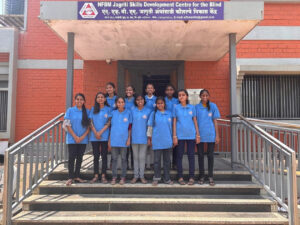
Her path eventually led her to the National Federation of the Blind’s Jagriti School for Blind Girls in Pune — a place that today houses 110 blind girls, 99% of whom come from rural areas. Here, the girls don’t just study; they live, learn, and grow together in an environment that believes in what they can do, rather than what they can’t.
When Aarti joined Jagriti, she began as a psychologist, focusing on the social and emotional development of the girls. But the more she listened to their dreams and struggles, the more she saw the barriers waiting for them after school. “When you give them the right tools, you’re not just giving them a skill — you’re giving them back their choice,” she reflects.
Visually-challenged girls face a stark reality once they step out into the world. Apart from limited government quota jobs in banks or insurance, there were few opportunities that truly matched their abilities. So, Aarti decided to do something about it.
“True empowerment means they can live with dignity, not just survive.”
She founded the Skill Development Centre inside Jagriti School — a space where blind girls could learn practical, job-ready skills that tap into their real strengths. Many of the students have remarkable listening and verbal abilities. So the Centre offers courses that play to these strengths: voice modulation, foreign languages, recruitment training, and more. There are also classes in computer literacy, digital accessibility testing, and even coaching for competitive exams.

But the real magic lies in how the Centre stays rooted in reality. The team works closely with organisations like Vision-Aid India and inclusive employers to keep training aligned with what the industry actually wants. Each student’s strengths and interests are mapped out with care, so the training feels personal and purposeful.
Equally important is what happens beyond the classroom. Many girls arrive at Jagriti shy, anxious, or unsure of themselves. They may have never used a screen reader, travelled alone, or spoken up in public. So the Centre pairs technical skills with confidence-building: mobility training, decision-making workshops, life skills, and emotional support.
“They didn’t need sympathy — they needed direction, support and opportunity,”
Funding is always a tightrope act — a mix of donations, CSR partnerships, and the occasional government grant keeps the Centre alive. It covers trainer salaries, hostel facilities, assistive technology, and learning materials. The school is committed to full transparency with its supporters, many of whom return year after year because they can see exactly where their help is going.

Aarti knows that none of this would be possible without the right people leading the way. Every teacher or trainer goes through orientation in assistive technology and inclusive education. Sensitisation workshops and regular feedback from students make sure the environment stays supportive and respectful.
As the world changes, so do Aarti’s dreams for the Centre. She hopes to introduce advanced digital modules, remote work training, and a stronger network of inclusive employers. But what excites her most is the chance to rewrite how society sees disability, not as a barrier, but as a different kind of potential waiting to be unlocked.
For the 110 girls who call Jagriti School home, Aarti Takawane is more than just a teacher. She’s proof that sometimes, the best things really do happen by accident — and that true vision is not about what we see, but what we choose to do about what we can’t.
Read the full story in our issue of Teacher Warriors 2025 at https://scoonews.com/magazines/scoonews-june-july-2025-digital-edition/
Education
“We Sleep on Walls Here”: Shubhanshu Shukla Talks to Indian Students from Space

Astronaut Shubhanshu Shukla, currently stationed aboard the International Space Station (ISS), answered questions from schoolchildren during a live interaction hosted under ISRO’s Vidyarthi Samvad Program.
The session, designed to bring students closer to the realities of space science, turned into a heartwarming and humorous conversation about food, sleep, and the sheer wonder of viewing Earth from space.
When asked how astronauts sleep in zero gravity, Shukla smiled and explained: “There is no floor or ceiling in space. Some of us sleep on the wall, some on the ceiling. We have to tie ourselves down so we don’t float away while sleeping.”
The conversation became sweeter when Shukla revealed that he brought familiar Indian flavours with him into orbit. “I have carried gajar ka halwa, moong dal halwa, and mango juice with me from India,” he said, to the delight of the young audience. He clarified that the halwa was specially medicated for space missions, not made at home — a detail that sparked laughter and curiosity alike.
The astronaut also spoke about daily life aboard the ISS, including how exercise is essential to counter microgravity. “We ride bicycles here, but there are no seats. We strap ourselves in with belts,” he told the children, who were both fascinated and amused by the image.
For Shukla, however, the highlight of being in space remains the view of Earth. “That blue sphere, that light mist… seeing Earth from here is the most beautiful experience. It’s hard to describe in words.”
Addressing mental well-being, he shared how astronauts stay connected with their families. “Technology helps bridge the distance. We can talk to our loved ones, and that keeps us grounded — even when we’re not.”
Also present during the interaction was Group Captain Angad Pratap, a fellow member of the Gaganyaan mission crew, who encouraged students to consider careers in aviation and space science.
For many students, the session was a dream come true. “It felt like science fiction,” said one participant. “Now I believe I can go to space one day.”
As India continues its rapid progress in space exploration, conversations like these serve as reminders that inspiration is as critical as infrastructure — and that sometimes, a simple chat with an astronaut can launch the imagination of an entire generation.
Education
Banu Mushtaq’s International Booker Win Is a Wake-Up Call for Indian Schools to Reclaim Literature
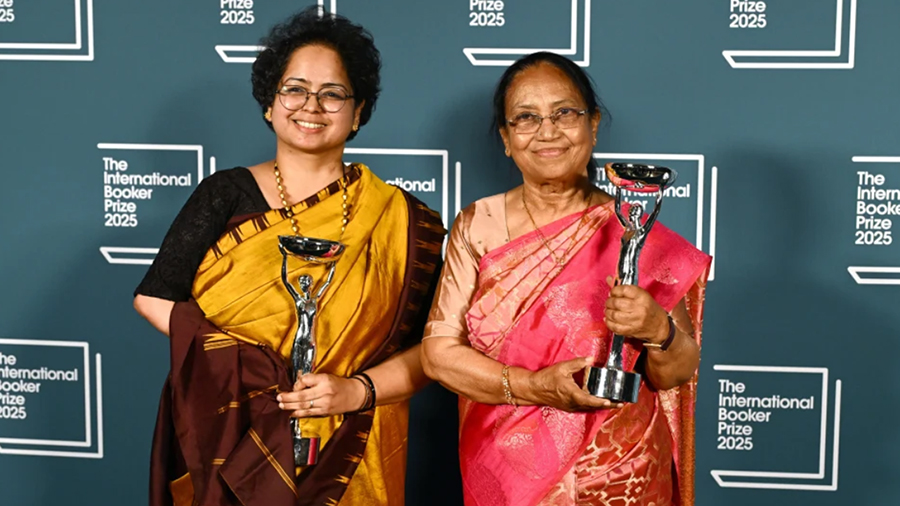
When Banu Mushtaq became the first Kannada author to win the prestigious International Booker Prize for her short story collection Heart Lamp, she didn’t just make literary history—she reignited a conversation about the role of literature in shaping society, and the way schools can nurture future writers not just as hobbyists, but as cultural forces.
Mushtaq, along with translator Deepa Bhasthi, was honoured for Heart Lamp, a collection of stories chronicling the lives of Muslim women in Karnataka across three decades. The stories are rooted in resistance, critique of religious and patriarchal structures, and everyday courage. The recognition was not just for the literary craft, but for the emotional and moral clarity the stories offer—a kind of truth that is rarely rewarded in global spaces. But the International Booker did just that.
And yet, how many students in Indian classrooms today know what the Booker Prize even is? While the Grammys, Oscars and even YouTube Play Buttons are common cultural currency among young people, literary awards often pass under the radar. This needs to change.
The International Booker Prize is one of the most prestigious literary honours in the world, recognising the finest works of fiction translated into English. It opens up space for voices that often remain local to reach a global stage. For students in India, this is an opportunity to understand that writing, especially in regional languages, is not a dead-end path. Yes, it may not offer the instant gratification of a viral video or influencer deal—but as Mushtaq’s life proves, it can shape public discourse, win global accolades, and leave behind a legacy that matters.
For educators, this is a teaching moment. Banu Mushtaq’s story is as much about literary merit as it is about resilience. She wrote in Kannada, a language she adopted over her native Urdu. She survived deep personal trauma, including a suicide attempt, and faced social backlash for her activism. She was a councillor, a journalist, and a lifelong advocate for women’s rights. These are the kinds of role models classrooms should be spotlighting—especially for young girls who need to see that stories, quite literally, can change lives.
Heart Lamp may not be appropriate for every age group, but its themes—identity, voice, justice—can be introduced in many ways. Schools should consider book discussions, literary circles, or even creative writing prompts inspired by such works to encourage students to find their voice, in whatever language or form it may come.
This win is also a reminder that educators need to broaden the definition of success they present to students. STEM, coding, and commerce continue to dominate career conversations, but it’s equally crucial to show that the arts—especially literature—have their own path to impact and influence. We hope for a time when young writers are not asked “what else do you do?” but are valued for what their words bring to the world.
Banu Mushtaq’s Booker Prize win is not just an individual triumph—it’s a collective opportunity. For schools, for students, and for all of us who believe that a powerful story can change minds, communities, and someday, the world.
Education
John King’s Book ‘Teacher By Teacher’: A Global Tribute to the Transformative Power of Education
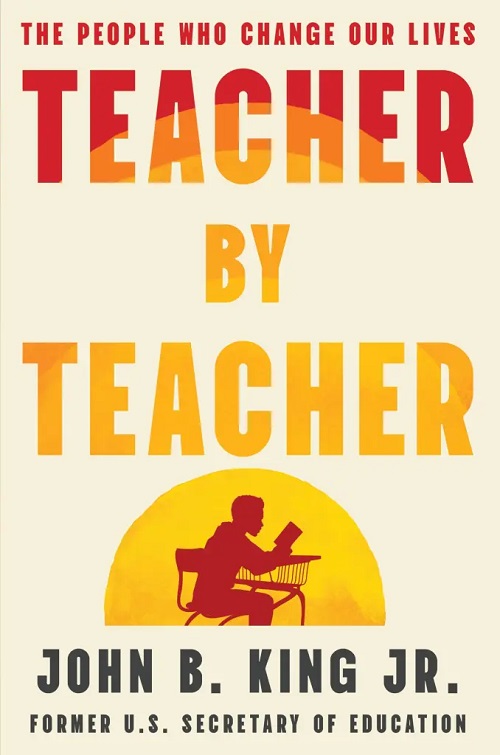
For John B. King Jr., former U.S. Secretary of Education, school wasn’t just a place—it was a lifeline. In his newly released memoir, Teacher By Teacher: The People Who Change Our Lives, King traces his journey from a grief-stricken child in New York to the corridors of educational leadership in Washington, D.C. But while the book is rooted in the American educational experience, its messages about the impact of teachers resonate far beyond U.S. borders.
In an exclusive interview with Education Week’s Sam Mallon on May 5, 2025, King reflected on his memoir, the teachers who shaped his life, and the ongoing challenges educators face worldwide.
A Childhood Saved by Teachers
King’s story is a testament to the power of mentorship. Following the death of his mother and his father’s battle with Alzheimer’s, school became King’s sanctuary. “Teachers saved my life,” he shared, recalling how educators believed in him, nurtured his potential, and gave him hope even when the world outside seemed dark.
From those formative years, King went on to earn degrees from Harvard, Columbia, and Yale. His career as a teacher, school principal, education policymaker, and eventually, U.S. Secretary of Education became a journey of giving back. The memoir celebrates not only King’s personal resilience but the quiet heroism of teachers everywhere.
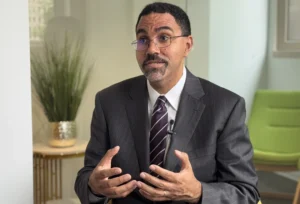
Former Secretary of U.S Education John King. Image Source- EducationWeek
While King’s book is anchored in American education, the messages it carries are universally relevant. Teachers worldwide are grappling with challenges—overcrowded classrooms, mental health issues among students, and ever-changing education policies. In his interview with Education Week, King highlighted how schools must be more than academic factories. They must be safe havens, places of healing, and hubs of inspiration.
King advocates for “trauma-informed practice”—an approach where teachers are equipped to understand and support students facing emotional challenges. This is a lesson that transcends borders, as schools globally encounter rising mental health concerns among students.
Teacher Evaluations and Policy Pressures
King’s time as U.S. Secretary of Education was marked by ambitious reforms—from implementing the Every Student Succeeds Act (ESSA) to pushing for more rigorous teacher evaluation systems. But looking back, he acknowledges a key lesson: change cannot be forced without teacher buy-in.
“Teachers can’t be bombarded with reforms,” he explained. Change must be gradual, and educators must feel a sense of ownership over new policies.
King’s narrative is ultimately about hope. In his memoir, he shares how a single teacher’s encouragement can change a student’s life trajectory. He recalls how his father’s legacy as New York’s first Black deputy schools chief was kept alive by a former student who, years later, shared how impactful his father’s teaching was.
Teaching is more than a job—it is a calling. It is a force for social good, a platform for mentorship, and a means to nurture the next generation of thinkers, leaders, and dreamers. King’s Teacher By Teacher is a reminder that educators everywhere have the power to transform lives, often without even knowing it.
Though written from an American perspective, Teacher By Teacher is a love letter to educators everywhere. It is a call to support teachers, to understand the pressures they face, and to recognise the life-changing impact they can have on their students.
For a world that often takes teachers for granted, John King’s memoir is a reminder of the heroes who stand at the front of every classroom, ready to make a difference.
Excerpts referenced in this article were taken from John King's exclusive interview with Education Week on May 5, 2025, in Washington, conducted by Sam Mallon for Education Week.
Education
Rewriting Ambedkar: Why Students Must Know the Man Beyond the Constitution
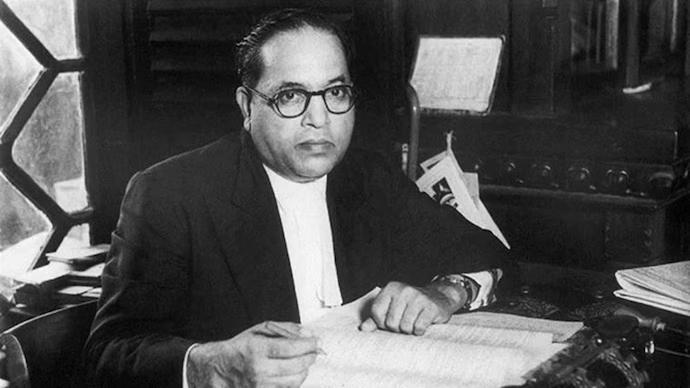
Ambedkar Jayanti Special | ScooNews
Dr. Bhimrao Ramji Ambedkar. Most students in India recognise the name—largely as the “Father of the Indian Constitution.” If you ask a Class 10 student what Ambedkar stood for, you’ll likely get a respectable summary: chairperson of the Drafting Committee, architect of constitutional equality, and perhaps a passing reference to his fight against untouchability. But that’s where it ends.
This is not a failure of our students. This is a failure of our books.
Because Babasaheb Ambedkar was not just a jurist or a political figure to be summarised in three bullet points under Civics. He was one of the most radical, intellectually fierce, and unapologetically liberal minds India has ever known. And if we are talking about modern India—its democracy, its dissent, its diversity, its demands for dignity—then Dr. Ambedkar isn’t just relevant, he is foundational.
And yet, he remains tragically under-read and under-taught.
The Man We Didn’t Read Enough About
Ambedkar’s life is a masterclass in resilience, intellect, and reform. Born into the most marginalised community in India, he went on to become the first Indian to pursue a doctorate in economics from Columbia University, studied law at the London School of Economics, and returned to a country that still wouldn’t allow him to sit beside upper-caste students.
But Ambedkar did not stop at personal success. He turned his education into ammunition. His writings dissected caste not just as a social issue but as an economic and psychological reality. In works like Annihilation of Caste, he boldly challenged not just the religious orthodoxy but also Mahatma Gandhi—a sacred figure for many—in ways that were considered almost blasphemous at the time. And even today.
Unlike Gandhi, who sought reform within the caste system, Ambedkar demanded its demolition. Where Gandhi appealed to morality, Ambedkar appealed to reason, law, and modernity.
This discomfort with Ambedkar’s sharp, unflinching views is perhaps why our textbooks package him safely—as the dignified lawyer with a pen, not the roaring revolutionary with a voice.
More Than a Constitution-Maker
To say Ambedkar gave us the Constitution is both true and painfully incomplete.
- He gave us the right to constitutional morality, the idea that the Constitution isn’t just a set of rules but a living document that must be interpreted in the spirit of liberty, equality, and justice.
- He envisioned reservations not as charity but as corrective justice.
- He believed that a true democracy must have “social democracy” at its base—not just the right to vote but the right to dignity in everyday life.
- And he warned, prophetically, that political democracy without social democracy would be India’s downfall. He was not just designing India’s governance system, but was rather trying to develop India’s moral spine.
A Voice for Individual Freedom—Louder Than We Knew
“I measure the progress of a community by the degree of progress which women have achieved.”- Bhim Rao Ambedkar
Ambedkar’s liberalism was far ahead of his time. He consistently advocated for individual rights in the truest sense. There’s documented evidence that he argued for the decriminalisation of same-sex relationships, seeing it as an issue of individual freedom long before such conversations entered our legal discourse.
His economic ideas—rarely taught—favoured state-led industrialisation, fair wages, and social security decades before these became policy buzzwords. His writings on women’s rights were equally progressive, particularly through the Hindu Code Bill, which sought to grant women equal property rights, rights to divorce, and freedom in marriage—a bill so radical for its time that it was shelved, only to return years later in diluted forms.
Why Today’s Students Need Ambedkar—Unfiltered
In an age where freedom of speech is contested, when marginalised voices still struggle for space, when gender and sexuality are still debated as ‘issues’ instead of identities—Ambedkar is the teacher we didn’t know we needed.
We need to stop sanitising him for our syllabus. We need high schoolers to read Annihilation of Caste in their literature classes and understand the intersections of caste, religion, and gender in history—not just from an upper-caste nationalist lens but from the view of the people who fought to be seen as human.
We need Ambedkar in economics classrooms, debating his views against today’s neoliberal models.
We need to introduce him as an intellectual, a radical thinker, a critic of Gandhi, a reformer of Hindu personal law, a journalist, a linguist, a labour rights advocate, a rebel with a cause.
Because the freedoms we enjoy today—freedom of religion, freedom of expression, freedom to love, to choose, to protest, to dream—all have Ambedkar’s fingerprints on them.
If our education system truly believes in nurturing critical thinkers and empathetic citizens, then Dr. Ambedkar cannot remain a footnote or a ceremonial portrait garlanded on April 14th.
He must be read. He must be debated. He must be understood. Because the more we know about Ambedkar, the more we know about ourselves—and the democracy we’re still trying to build.
Education
“Be the Change in a Changing World”: Anita Karwal and Anju Chazot Reflect on NEP 2020
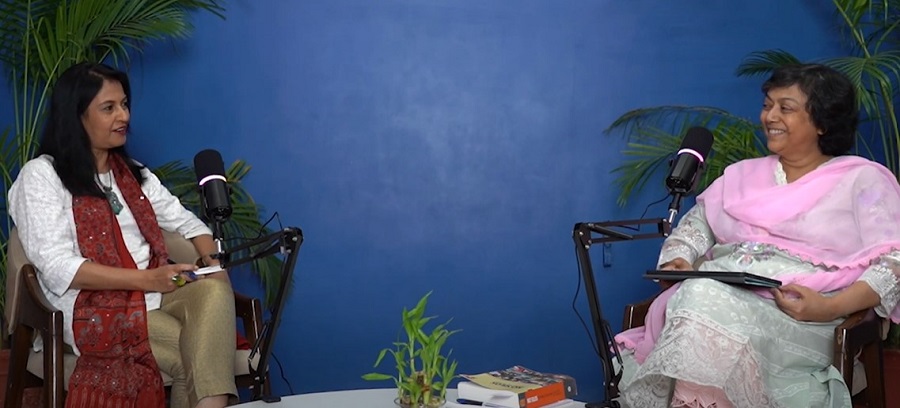
In a deeply reflective and engaging episode of the NEP Tunes podcast, Dr. Anju Chazot, education reformer and founder of Mahatma Gandhi International School (MGIS), Ahmedabad, sat down with Mrs. Anita Karwal, former Secretary of School Education, Government of India, to explore one fundamental question: How do we prepare children for a rapidly changing world?
Titled “Be the Change in the Changing World,” the episode offers a powerful conversation between two veterans of Indian education who have shared a decades-long friendship—and a mutual vision for a holistic and transformative school system.
“You can’t prepare children for tomorrow with the pedagogy of the day before yesterday.”
Drawing inspiration from John Dewey’s famous words, the episode begins by addressing the urgent need for policy literacy among stakeholders in education. Mrs. Karwal and Dr. Chazot underscore that the pace of global change—technological, environmental, economic, and emotional—has far outstripped the ability of traditional education systems to keep up. “We are in a VUCA world—volatile, uncertain, complex, ambiguous,” Karwal reminds listeners, calling for schools to adapt to this reality rather than resist it.
Decolonising the Classroom
A significant portion of the conversation focused on the historical context of schooling in India. Dr. Chazot draws parallels between today’s school system and Michel Foucault’s “cell and bell” model, which mirrors the prison system—marked by uniforms, bells, and rigid structures. Tracing the roots of modern schooling to the Prussian military model and colonial-era policies introduced by Lord Macaulay, both speakers lamented how education was once used as a tool to produce clerks for the Empire, rather than creative, entrepreneurial individuals.
“Colonialism didn’t just take away our resources; it colonised our minds,” Chazot observed. Karwal added, “The gurukul system was rooted, contextual, and sustainable. The colonial model replaced it with standardisation and control.”
Disruptions and the Call for Change
From climate change to AI, from the gig economy to rising mental health challenges—today’s youth are living in an era of non-stop disruptions. Mrs. Karwal shared a poignant insight: on the very day she retired from her government service (30 November 2022), OpenAI launched ChatGPT. “As a senior citizen, I would have felt useless had I not tried to understand this disruption,” she said, urging listeners to stay updated with technological trends.
Mental health also featured prominently in the discussion. The World Health Organization reports a 25% increase in global anxiety and depression cases, especially among the youth. Schools, Karwal said, must acknowledge and address this invisible epidemic, and create environments that are nurturing—not anxiety-inducing.
Why NEP 2020 Is a Game Changer
Against this backdrop, both educators believe the National Education Policy 2020 is a timely and visionary document. “It’s not just about academics—it’s about the whole child,” said Chazot, pointing to NEP’s focus on holistic development across cognitive, emotional, physical, and ethical domains.
Key elements of the NEP and the newly released National Curriculum Framework (NCF) discussed in the podcast include:
-
A shift from rote learning to competency-based, experiential learning
-
Focus on Indian traditions and cultural rootedness
-
Moving away from exam-centric teaching, especially in early years
-
Recognition of multilingualism and contextual learning
-
Encouragement of critical thinking, creativity, and adaptability
“Learning to learn is the most essential skill of the future,” Karwal stressed. “Children must be ready to unlearn and relearn throughout life.”
The Future of Jobs
To illustrate the rapidly changing employment landscape, both speakers listed a host of emerging careers—from Prompt Engineers and Drone Fleet Managers to Climate Data Analysts and Digital Detox Specialists. “Just imagine,” Chazot quipped, “if I were a child again, I’d become a Prompt Engineer and finally fulfil my parents’ dreams of being an engineer—with a creative twist!”
Karwal, on the other hand, expressed a desire to become a Human-Machine Team Manager—a futuristic role bridging collaboration between people and machines.
Their message was clear: the world our children are entering is drastically different from the one their parents and teachers grew up in. And education must keep up.
A Takeaway Challenge for Listeners
To wrap up the episode, the hosts offered a unique call-to-action: ask yourself what job you would pick today if you could go back in time again. Then, explore new professions with your family or students. From LinkedIn job listings to the World Economic Forum’s reports, Karwal recommended several tools to research emerging careers. They invited listeners to write in with their findings and reflections.
“This exercise is not just for students,” said Dr. Chazot. “It’s for parents, teachers, and policy-makers alike. We must all become learners again.”
Final Thoughts
In an era where the only constant is change, the NEP Tunes podcast is a timely resource to help educators, parents, and students reimagine the purpose of schooling. With leaders like Anju Chazot and Anita Karwal at the helm of the conversation, the journey towards meaningful transformation in Indian education seems not only possible—but exciting.
🟡 This article is adapted from the NEP Tunes podcast hosted by Dr. Anju Chazot. You can listen to the full episode on YouTube. Here is the video-
Education
Sunbeam Indiranagar Shines in Academics, Arts, and Sports, Cementing Its Legacy of Holistic Education
Education
Nagaland Schools Launch ‘Adolescent Girls Club’ to Empower Young Girls Under Mission Shakti
-

 Education2 months ago
Education2 months agoCBSE’s ‘Sugar Boards’ Initiative: Tackling the Sweet Crisis in Indian Schools
-

 Education3 months ago
Education3 months agoIs Your School Following These Mandatory CBSE Committees?
-
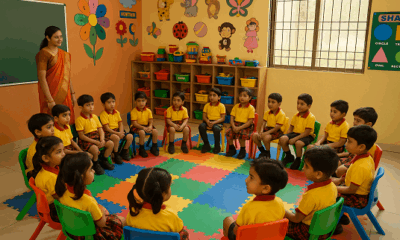
 Education3 months ago
Education3 months agoMaharashtra to Regulate Pre-Primary Education with New Law Aligned to NEP 2020
-

 Education3 months ago
Education3 months agoMAHAJYOTI’s Book Distribution Scheme to Empower 7,000 OBC Students Preparing for JEE/NEET & MHT-CET
-

 Education3 months ago
Education3 months agoChina Embarks on Ambitious AI-Driven Education Reform to Build a ‘Strong Education Nation’ by 2035
-

 Education3 months ago
Education3 months agoCBSE Introduces Mandatory Bridge Course for Classes 6 to 12 in Chhattisgarh Under NEP 2020
-
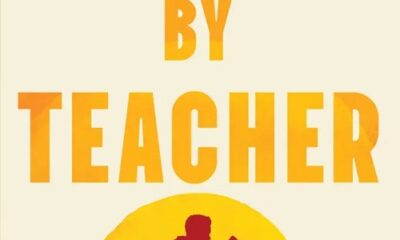
 Education2 months ago
Education2 months agoJohn King’s Book ‘Teacher By Teacher’: A Global Tribute to the Transformative Power of Education
-
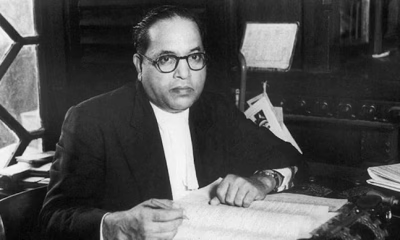
 Education3 months ago
Education3 months agoRewriting Ambedkar: Why Students Must Know the Man Beyond the Constitution
-
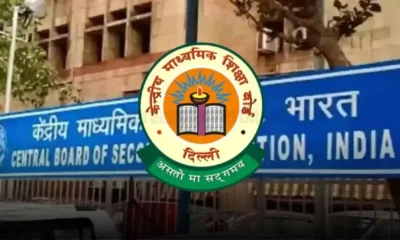
 Education3 months ago
Education3 months agoCBSE Mandates 50-Hour Annual Training for Teachers, Declares STEM as 2025 Theme
-
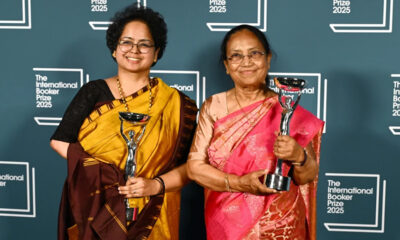
 Education2 months ago
Education2 months agoBanu Mushtaq’s International Booker Win Is a Wake-Up Call for Indian Schools to Reclaim Literature






